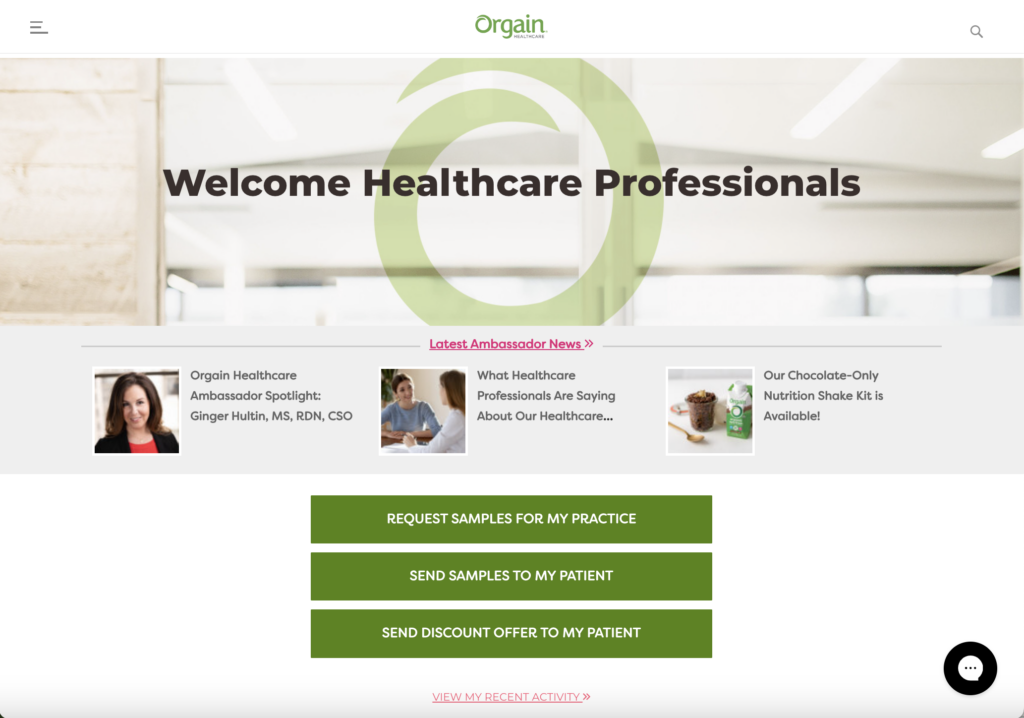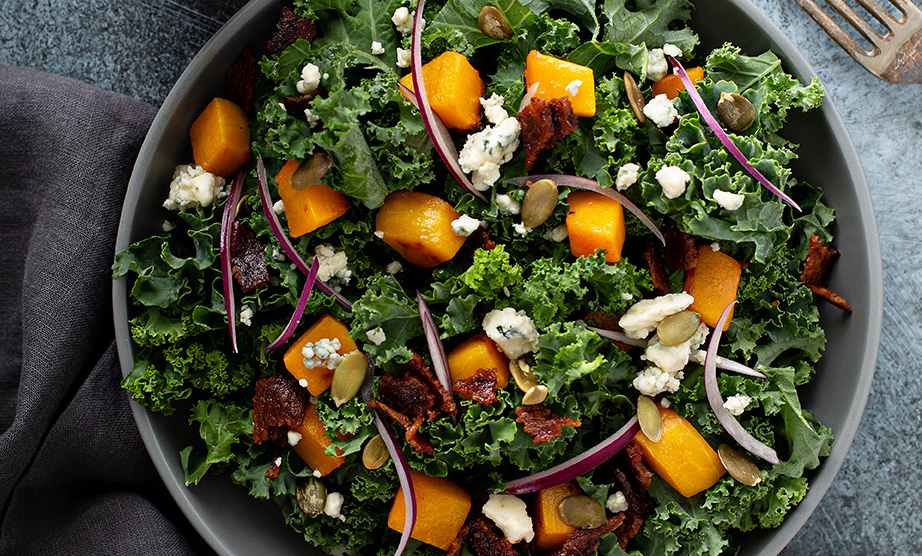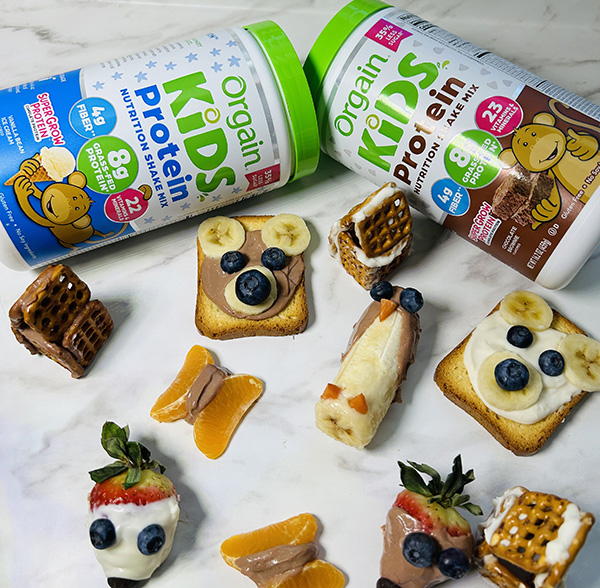Cognitive deterioration is a normal aspect of growing older, yet a substantial body of research suggests that early dietary and lifestyle modifications can offer significant benefits and preventive support. The onset of cognitive decline typically begins around age 60 and can lead to a loss of both function and independence.1-3 Approximately two-thirds of older adults will face some degree of cognitive decline in their lives, impacting their autonomy and daily functioning.1,2 Currently, over 5 million older adults in the US have dementia and this number is expected to double by 2050.4 Preventative measures are crucial and should be emphasized by healthcare providers.3-7
Healthy aging can be negatively affected by cognitive decline and the reasons that it develops are multifactorial.6 Estimates show that up to 40% of dementia cases worldwide can be attributed to modifiable factors such as lack of education, hypertension, obesity, diabetes, smoking, excessive alcohol use, lack of physical activity, depression, lack of social connection, hearing loss, traumatic brain injury, and air pollution/environmental toxins.3,4,6 Non-modifiable factors like genetics and the natural aging process also create challenges for healthcare providers, but the good news is, there’s a lot that can be done to aid in healthy cognitive aging.2,8
Studies show that the earlier lifestyle changes are introduced, the more effective they may be at slowing decline. Interventions for brain health with aging relate to many lifestyle factors including diet, stress, sleep, mental health, social connection, and even toxin exposure.3-7 Neurons in the brain need to retain plasticity, or neuronal plasticity, to help meet the dynamic demands needed for proper cognitive function long-term. Physical activity is a proven way to support neuroplasticity including improvements in learning and memory while reducing rates of cognitive decline in older adults. Dietary antioxidant intake has also shown benefits for neuroplasticity which is likely why so many high antioxidant foods have been linked to cognitive benefits with aging.9 Health care professionals are uniquely qualified and positioned to intervene before cognitive impairment happens or educate patients at the beginning stages on how to slow the progression. Overarching dietary patterns as well as individual nutrients and foods can be the focus of a healthy aging intervention.
Dietary Patterns for Healthy Cognitive Aging
Though individual foods have shown important relevance to healthy aging, the overall dietary pattern is critical for health care practitioners to assess and educate on because what’s consumed over time in a person’s life plays a role in brain health with aging. The Mediterranean diet has been studied extensively regarding cognitive impairment with aging as has the Nordic Diet, the Dietary Approaches to Stop Hypertension (DASH) diet, and the Mediterranean-DASH Intervention for Neurodegenerative Delay (MIND) diet.3,5-7 These diets have some important aspects in common. They are largely plant-based and include antioxidant-rich foods high in polyphenols that offer b-vitamins and both polyunsaturated and monounsaturated fat sources. These diets include foods that likely play a role in neuroprotective benefits such as legumes, fish, vegetables, fruits, whole grains, nuts and seeds.3,8,10
While no one dietary pattern has been definitively linked to preventing cognitive decline, large epidemiological studies show both cardiovascular benefits as well as cognitive benefits to these types of diets, likely because of anti-inflammatory benefits from antioxidant rich dietary components within the overall pattern.8-10 Reductions in blood pressure, improved mitochondrial function, preserved white matter microstructure in the brain, proper cerebral brain flow, and lipid lowering properties can all be linked to healthy aging dietary patterns.8-10 Researchers also acknowledge that other lifestyle aspects such as physical activity, social connection, rest/sleep, and stress management should also be included in health care practitioner education about dietary patterns and lifestyle interventions to support healthy cognitive aging.6,8-10
Evidence-based dietary patterns for healthy cognitive aging all limit foods that are rich in the Standard American (SAD) or Western Diet such as sugar-sweetened beverages, ultra-processed foods, red meat, and desserts. It’s important for health care providers to know that the SAD dietary pattern is linked to increased risk of Alzheimer’s disease as well as vascular diseases, stroke, type II diabetes, and obesity.3,8
Foods and Nutrients that Support People with Cognitive Decline
Exciting research has shown that individual foods or food groups show promise when incorporated into evidence-based dietary patterns that could help slow cognitive decline. Many of these foods or nutrients have been independently linked to better cognitive performance in research. Specific compounds like polyphenols in fruits, vegetables, antioxidant-rich beverages like coffee and tea, and macronutrients like protein or unsaturated fatty acids have been the focus of research. Evidence continues to point to the fact that when people eat more of these foods over time as part of an overall healthful dietary pattern, they generally experience less risk of cognitive function loss with age.
Fruit and Vegetables
Large human studies have shown that fruit and vegetable consumption is linked to lower prevalence of cognitive disorders with aging.6,7,8-11 A large meta-analysis of 16 studies found that the higher the intake of fruit and vegetables were consumed, the lower the prevalence of cognitive disorders were observed.11 Another large cross-sectional study (n=2,460 adults) found that participants with the highest intake of fruit and vegetable had the lowest odds of both memory loss and comorbid heart disease.4 Another study (n=139,096) aged 45 and older also saw that participants who had higher fruit and vegetable consumption had lower odds of memory loss over time.12 This inverse dose-response relationship replicated in large human studies could be related to antioxidant intake, a better regulated immune system, reduced neuroinflammation due to the anti-inflammatory properties of produce, or even better managed serum homocysteine levels (a substance with both cardiovascular damaging and neurotoxic effects) due to the high folate content of fruits and vegetables.4,6-8,10-12
Tea and Coffee
Antioxidant rich beverages like tea, especially green tea, and coffee have been linked in studies to better cognitive outcomes when it comes to aging.13,14 A large review (n=389,505) found that generally, coffee and tea consumption is linked to a lower risk of cognitive disorders with aging.14 Specifically, 2.5 cups of caffeinated ‘regular’ coffee per day minimized the risk of developing Alzheimer’s Disease and 1 cup of tea per day is linked to an 11% reduction in developing cognitive deficits.14 The researchers hypothesize that green and black teas have more caffeine and catechins than herbal tea which could provide greater cognitive benefits, though more studies are needed on tea subcategories.
Studies on the subject of beverages and cognitive decline are mixed. A longitudinal study (n=1,305) found that green tea intake but not coffee intake was significantly associated with a reduced risk of cognitive decline in older adults.13 Many other studies have found benefits from coffee, and caffeinated vs decaffeinated coffee has also been studied.15 One large study (n=2513) found cognitive benefits for older adults related to caffeinated coffee, but not decaf coffee.15 Potential mechanisms that could explain the neuroprotective effects of regular coffee include caffeine’s ability to stimulate some antioxidant and anti-inflammatory pathways in the body, helping to reduce oxidative stress.14,15 Caffeine interacts with receptors in parts of the brain that play key roles in cognitive health including the hippocampus and cortex.14 Researchers also hypothesize that polyphenol antioxidants in coffee and tea may help reduce neurogenic inflammation and suppress amyloid-β generation (a peptide that plays a role in plaque formation that can lead to Alzheimer’s disease).13,14,16
Protein
Protein is an important nutrient for aging adults. Protecting lean body mass can help with long-term independence and function but new evidence supports that protein intake may also play a role in cognitive health as well.4 Investigators using National Health and Nutrition Examination Survey (NHANES) results to compare dietary recall data against cognitive testing (n=2,460) found that protein intake was associated with significantly better performance on cognitive tests. These researchers found that protein sources from meat, eggs, and beans were associated with positive cognitive health over time.4 Another large meta-analysis (n=4,929) of older adults found that protein was positively correlated with memory, visual spatial processing, verbal fluency, processing speed, and sustained attention.16 Researchers hypothesize that nutrients such as B12 as well as branch chain amino acids including glutamate which plays a key role in learning and memory functions in the brain may be the reason for these benefits.17 Studies are still emerging about benefits from different types of protein, quantity of protein, and differences in geographical cohorts and biological sex of participants.4,17
Unsaturated Fatty Acids
Nuts have also been studied in association with healthy aging and brain health. Walnuts, in particular, have gained attention likely related to their naturally occurring omega-3 content which has been studied in conjunction with slowing cognitive decline or even improvements in cognitive health.21,22 Serum omega-3 status in older adults has been associated with better memory, processing speed, and even brain structure including white matter volume though studies on intake quantity and food vs supplement sources are still mixed.22 The anti-inflammatory properties of omega-3’s in addition to potential antioxidant activity from polyphenols in extra virgin olive oil, and the power of PUFAs and MUFas to reduce oxidative stress in neural tissue are all reasons that foods rich in unsaturated fatty acids omega-3’s may be beneficial.21-23
Recommendations for Practitioners
Health care providers play a critical role in offering guidance for people at risk of or experiencing cognitive decline with aging to motivate a greater intake of fruits, vegetables, green tea and coffee, healthy fats such as olive oil, nuts, and other omega-3 sources, and ensure that their patients meet their protein needs. Delivering a personalized approach based on each person’s health literacy, cognitive health, and dietary needs is important.24 By taking a multifactorial, interdisciplinary, lifestyle approach that’s proactive, there are many options for nutrition interventions that are evidence-based and could play a role in helping improve cognitive function or slowing the progression to more serious decline.
References:
- Jessen F, Amariglio RE, Buckley RF, et al. The characterisation of subjective cognitive decline. Lancet Neurol. 2020;19(3):271-278.
- Randhawa SS, Varghese D. Geriatric Evaluation and Treatment of Age-Related Cognitive Decline. Updated September 28, 2023. In: StatPearls. Treasure Island ,FL: StatPearls Publishing; 2024. Available from: https://www.ncbi.nlm.nih.gov/books/NBK580536/.
- Ellouze I, Sheffler J, Nagpal R, Arjmandi B. Dietary patterns and Alzheimer’s disease: An updated review linking nutrition to neuroscience. Nutrients. 2023;15(14):3204.
- Li Y, Li S, Wang W, Zhang D. Association between dietary protein intake and cognitive function in adults aged 60 years and older. The journal of nutrition, health & aging. 2020;24:223-9.
- Lisko I, Kulmala J, Annetorp M, Ngandu T, Mangialasche F, Kivipelto M. How can dementia and disability be prevented in older adults: where are we today and where are we going?. Journal of internal medicine. 2021;289(6):807-30.
- World Health Organization. Risk Reduction of Cognitve Decline and dementia: WHO guidelines. https://www.who.int/publications/i/item/9789241550543. 2019. Accessed February 25, 2024.
- Rosenberg A, Mangialasche F, Ngandu T, Solomon A, Kivipelto M. Multidomain interventions to prevent cognitive impairment, Alzheimer’s disease, and dementia: From FINGER to World-Wide FINGERS. The journal of prevention of Alzheimer’s disease. 2020;7:29-36.
- Rao RV, Subramaniam KG, Gregory J, et al. Rationale for a multi-factorial approach for the reversal of cognitive decline in Alzheimer’s disease and MCI: a review. Intl J Molec Sci. 2023;24(2):1659.
- Phillips C. Lifestyle modulators of neuroplasticity: how physical activity, mental engagement, and diet promote cognitive health during aging. Neural plasticity. 2017.
- Dominguez LJ, Veronese N, Vernuccio L, et al. Nutrition, physical activity, and other lifestyle factors in the prevention of cognitive decline and dementia. Nutrients. 2021;13(11):4080.
- Zhou Y, Wang J, Cao L, Shi M, Liu H, Zhao Y, Xia Y. Fruit and vegetable consumption and cognitive disorders in older adults: A meta-analysis of observational studies. Frontiers in nutrition. 2022;20;9:871061.
- Xu X, Ling M, Inglis SC, Hickman L, Parker D. Eating and healthy ageing: a longitudinal study on the association between food consumption, memory loss and its comorbidities. International journal of public health. 2020;65(5):571-582
- Shirai Y, Kuriki K, Otsuka R, et al. Green tea and coffee intake and risk of cognitive decline in older adults: The National Institute for Longevity Sciences, Longitudinal Study of Aging. Public health nutrition. 2020;23(6):1049-57.
- Zhu Y, Hu CX, Liu X, Zhu RX, Wang BQ. Moderate coffee or tea consumption decreased the risk of cognitive disorders: an updated dose–response meta-analysis. Nutrition Reviews. 2023:nuad089.
- Dong X, Li S, Sun J, Li Y, Zhang D. Association of Coffee, Decaffeinated Coffee and Caffeine Intake from Coffee with Cognitive Performance in Older Adults: National Health and Nutrition Examination Survey (NHANES) 2011–2014. Nutrients. 2020;12(3):840.
- Brothers HM, Gosztyla ML, Robinson SR. The Physiological Roles of Amyloid-β Peptide Hint at New Ways to Treat Alzheimer’s Disease. Front Aging Neurosci. 2018;10:118.
- Coelho-Júnior HJ, Calvani R, Landi F, Picca A, Marzetti E. Protein intake and cognitive function in older adults: a systematic review and meta-analysis. Nutrition and metabolic insights. 2021;14:11786388211022373.
- Fazlollahi A, Asghari KM, Aslan C, Noori M, Nejadghaderi SA, Araj-Khodaei M, Sullman MJ, Karamzad N, Kolahi AA, Safiri S. The effects of olive oil consumption on cognitive performance: a systematic review. Frontiers in nutrition. 2023;10.
- Tzekaki EE, Tsolaki M, Geromichalos GD, Pantazaki ΑA. Extra Virgin Olive Oil consumption from Mild Cognitive Impairment patients attenuates oxidative and nitrative stress reflecting on the reduction of the PARP levels and DNA damage. Experimental Gerontology. 2021;156:111621.
- Lauretti E, Nenov M, Dincer O, Iuliano L, Praticò D. Extra virgin olive oil improves synaptic activity, short‐term plasticity, memory, and neuropathology in a tauopathy model. Aging Cell. 2020;19(1):e13076.
- Cahoon D, Shertukde SP, Avendano EE, Tanprasertsuk J, Scott TM, Johnson EJ, Chung M, Nirmala N. Walnut intake, cognitive outcomes and risk factors: a systematic review and meta-analysis. Annals of Medicine. 2021;53(1):972-98.
- Chauhan A, Chauhan V. Beneficial effects of walnuts on cognition and brain health. Nutrients. 2020;12(2):550.
- Loong S, Barnes S, Gatto NM, Chowdhury S, Lee GJ. Omega-3 Fatty Acids, Cognition, and Brain Volume in Older Adults. Brain sciences. 2023;13(9):1278.
- Hamiduzzaman M, Kuot A, Greenhill J, Strivens E, Isaac V. Towards personalized care: Factors associated with the quality of life of residents with dementia in Australian rural aged care homes. PloS one. 2020;15(5):e0233450.

Orgain Healthcare Ambassador Spotlight: Beryl Krinsky, MBA, MS, RD, LDN, and Komplete Dietetic (KBDI) Internship
We sat down with Beryl Krinsky, MBA, MS, RD, LDN – founder of The Komplete Business Dietetic Internship to learn more about her background and revolutionary company aimed at shaping the lives of future dietitians. Beryl is a Registered Dietitian Nutritionist with a Master of Science in Food Science and a Master of Business Administration in Food Marketing. With her passion for wellness and education, she launched B.Komplete, a wellness company that develops solutions for the corporate environment. She also started Komplete Business Dietetic Internship, a unique internship opportunity for prospective dietitians. This accredited program teaches future nutrition professionals the steps to become dietitians with business acumen. She empowers her graduates to find their own entrepreneurial path while providing value through exclusive rotations in business environments as well as clinical, community and food service management. Over the past couple of years Orgain had the pleasure of working with several interns from the Komplete Business Dietetic Internship and look forward to what’s to come in.
Q. How does the Komplete Business Dietetic Internship (KBDI) differ from other Dietetic Internships?
We are the premier, business-focused dietetic internship that includes business coaching as part of the program. We provide everything our interns need to know to take their business idea and bring it into reality – including social media training, sales, marketing and customer service training, and finance education.
We have a small cohort size and offer a high level of 1:1 attention to our interns from the program directors and board members. For example, we have an exciting business pitch night, that includes advice for RDN entrepreneurs, and a fun prize for our pitch winner! Our rotation schedule is very flexible, it includes up to 10 weeks of supervised practice hours in business rotations and allows you to take personal time off, and not miss out on life during your DI. We have also developed a proven RD-exam prep strategy that helps our interns pass the RD Exam!
We also provide a highly organized curriculum that helps our interns get the best experience possible in the supervised practice rotations. Our interns and preceptors have shared with us that the KBDI curriculum is the most organized and helpful curriculum they have ever seen.
Q. In what ways do KBDI interns work with Orgain?
Our interns rotate primarily within the Orgain Healthcare division for both business and enrichment rotations. Interns have the opportunity to work on the Orgain Ambassador Program, professional education webinar series, help develop or revise practitioner resources and work with The Good Clean Nutrition Podcast team, to just name a few of the various hands-on learning experiences. Additionally, interns will meet regularly with the Orgain RDs and Marketing team, and if they are located in Southern California, they can visit the Orgain Headquarters in Irvine, CA.
One of our graduates said, “I found the podcast preparation process, continuing education webinar, and help with clinical guides to be incredibly valuable”, when asked about her rotation with Orgain.
Q. What are some graduates of KBDI doing now?
Our graduates are helping populations around the country with nutrition and wellness! Many of them have/are in the process of starting their own nutrition and wellness businesses, such as private practices, consultants, communications, developing food products, partnering with technical applications and more! Our graduates are also thriving in clinical, food service, community, and outpatient. And here are quotes from two of our graduates:
“If it was not for KBDI and matching me with my Clinical Rotation preceptor, I would have never known how much I love working in behavioral health. As a result of this rotation, I have been presented with a great business partnership opportunity that has completely changed what I thought I’d do after graduation!” — Sarah Booe, KBDI Graduate 2023
“The final business plan project gave me the motivation to put together the roadmap for my future business. As I went through each rotation, I solidified my idea and created a game plan for what my future will look like as a Dietitian. I’m so excited to bring my product to market very soon. Thank you KBDI!!” — Husna Ridha, KBDI Graduate 2022
Q. What are some unique Orgain product applications from KBDI interns/preceptors?
We have partnered with Orgain since the very beginning of our primary business, B.Komplete (https://bkomplete.com). When our Founder, Beryl Krinsky, met an Orgain employee, who was doing an Orgain product demo at the market. They started chatting about their respective businesses, and how they can partner together to bring more wellness to populations across the country! Since that meeting, B.Komplete has featured Orgain products in Cooking Demonstrations, Tasting Tables, Wellness Awareness Stations, Ask the Dietitian Table, and 1:1 Counseling. Consumers absolutely love trying out the Orgain products, and they really appreciate the guidance that is provided by the B.Komplete Registered Dietitians who are leading the wellness events. As a result of this overwhelmingly successful partnership, the partnership has expanded. Now, Orgain works with both B.Komplete and the Komplete Business Dietetic Internship.
Q. How can those interested in KBDI learn more?
Visit https://kbdinternship.com and/or follow on social media @kbdinternship

Good news! The Ambassador Sampling Portal is back to full sampling capacityas of March 1st. All Orgain healthcare ambassadors are returned to typical ambassador kit sampling eligibility.
New Video Tutorials: Helpful tips to get the most from the Orgain Healthcare Sampling Portal and App!

Did you know there is more to the Ambassador Program than just getting samples? We now have 7 educational video tutorials that walk you through every step of the Healthcare Ambassador Program so that you can get the most out of it. Watching these tutorials will help you take advantage of resources and tools that you otherwise may not have known were available to you.
Be sure to take advantage of these new, informative tutorials so that you can get the most out of your ambassador program.
Not an ambassador yet? Request an account and start receiving free product samples to your practice and/or send samples directly to patients.

New Episode: Developing a Plant-based Palate with Vandana Sheth, RDN, CDCES, FAND (Ep – 35)
In this episode, Registered Dietitian Nutritionist Vandana Sheth shares how a plant-based diet can have positive health impacts and still be culturally relevant for anyone looking to make changes to what they eat. Vandana grew up in India and moved to the U.S. as an adult, more than 30 years ago. She shares what she learned from her mom’s healthy cooking and how she adapted that practice to life in the U.S. She and host Ginger Hultin also discuss specific plant-based swaps to increase nutrition, the importance of fiber and meal prep strategies for families where everyone doesn’t eat plant-based.
Upcoming Episode: Navigating a Diabetes Diagnosis with Vandana Sheth, RDN, CDCES, FAND (Ep – 36)
To build on episode 36, we have another exciting conversation with the same guest on the topic of Diabetes airing April 2nd, 2024. Vandana Sheth and Ginger Hultin delve deep into the crucial topic of understanding and managing diabetes. This episode sheds light on the significance of diabetes awareness, prevention and management strategies. Vandana shares insights on specific dietary considerations, like the consumption of fruits, whole grains, and sugar alternatives, and addresses the potential of continuous glucose monitoring and modern diabetes medications. The discussion also covers the emotional and social aspects of living with diabetes.
Be sure to subscribe to The Good Clean Nutrition Podcast on your favorite podcast platform and listen to more episodes at healthcare.orgain.com/podcast.

Tune in for this month’s new on-demand webinar, Kidneys and Kale: Preventative Kidney Care with Plants with AnnaMarie Rodriguez, RDN, LD, FAND
Nutrition for chronic kidney disease (CKD) has evolved beyond the traditional ‘renal’ diet that was overly restrictive and excluded foods that have vast healthful benefits in the treatment of many co-morbidities. This novel inclusive approach to nutrition care and kidney disease is fast becoming mainstream and leads to improved patient satisfaction and adherence. This session incorporates a review of the growing literature supporting plant-based interventions and CKD, the integration of plant-based protein to meet daily needs, and the affordability of plant-based foods which is a concern within the patient population struggling with CKD and who are typically impacted by health disparities and food insecurity. In this webinar, AnnaMarie will focus on the newest research of plant-based nutrition and its impact on delaying the progression of CKD to end stage kidney disease (ESKD) to improve overall quality of life.
Register now for our upcoming Live webinar on April 18th, 2024, at 2pm EST, Protein Deep Dive for Athletes, Active Individuals and the Aging Population by Kelly Jones, MS RD, CSSD, LDN
The Orgain Healthcare Professional Education Webinar Series can be easily accessed on the Orgain Healthcare App. Whether on-demand or live, all the webinars in this series are available for 1.0 CPEU for RDNs and NDTRs.

We are excited to share an updated collection of recipes created by healthcare professionals for healthcare professionals. This digital resource can support you in empowering your patients and clients to explore the versatility of protein powders and protein drinks in delicious and innovative ways, from savory applications to desserts. Since the new year, we’ve added 4 new recipes, with over 35 recipes total and more to come. We’ve also introduced a serving size adjustment feature, enabling you to scale recipes up or down to accommodate the number of servings needed. Recipes can easily be shared online using the URL or downloaded in PDF format, allowing you to print and distribute to patients and clients as needed.
To learn more, visit our recipes by professionals page.
Happy cooking!

Orgain is excited to announce its presence at the following upcoming in-person conferences & symposiums. If you plan to attend, be sure to stop by our booth and say hello as we’d love to meet you!

Oncology Nutrition 2024 Symposium
April 19-21st, Atlanta, GA

College and Professional Sports Dietitians Association (CPSDA)
May 19th-22nd, Kansas City, MO
–



